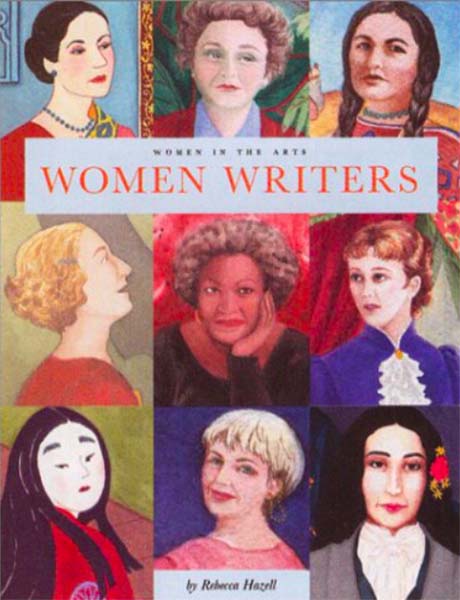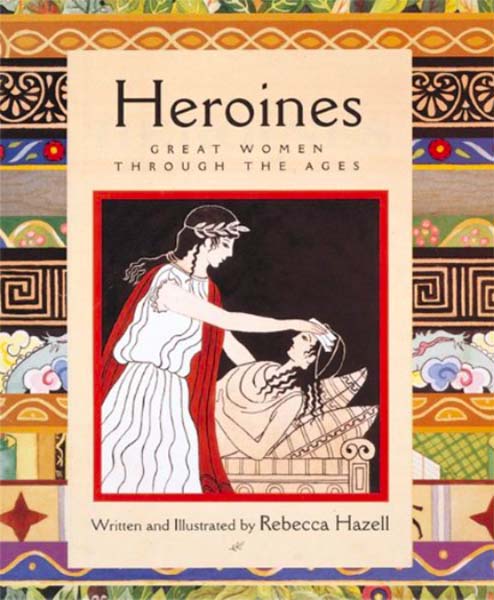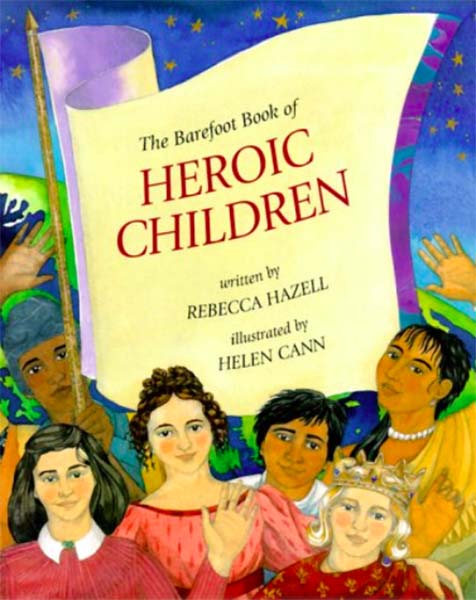The War Queens
The rise and fall of rival Queens Brunhilda and Fredegunda
By the sixth century, the Roman Empire is already lost to tribal invasions, brutal Merovingian Franks have seized Gaul from the civilized Romanized Visigoths, and a dark age has descended across Europe. Now a deadly rivalry arises between two Merovingian queens. Brunhilda and Fredegunda are equals in beauty and intelligence, but opposite in vision and temperament. When the Franks demand a royal bride, Visigoth Brunhilda marries into a world that despises women. Suddenly thrust into power and repeatedly facing loss and grief, she seeks to revive a new Rome based on justice and prosperity. Her implacable foe, Fredegunda, is a former slave concubine who lives only for personal power.
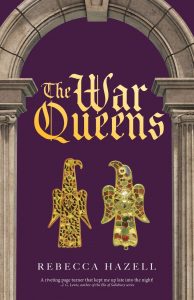

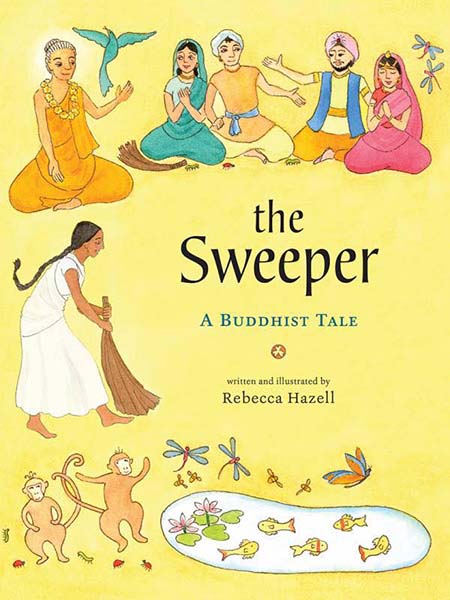
The Sweeper
A Buddhist Tale
Inspired by Buddhist tradition, this original story tells how Padme, a young servant girl, meets the Buddha as she is sweeping her master’s house. When she laments that she is so busy that she would never have time to meditate, the Buddha gives her the instruction to “sweep and clean.” This simple mindfulness practice transforms Padme’s life, and when she encounters the Buddha many years later, he teaches her how to send compassion out to others. This beautifully illustrated picture book is a wonderful way to introduce children to the power of mindfulness meditation practice.
The Grip of God
The Tiger and The Dove
Book One
The Grip of God is the first novel in an epic historical trilogy, The Tiger and the Dove. Set in the thirteenth century, its heroine, Sofia, is a young princess of Kievan Rus which was captured in battle and life of slavery to a young army captain in the Mongol armies that are flooding Europe. Not only is her life shattered, it is threatened by the bitter rivalries in her new master’s powerful family, and shadowed by the leader of the Mongol invasion.
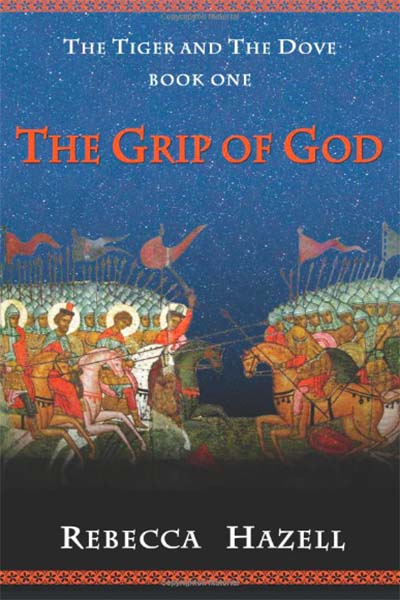

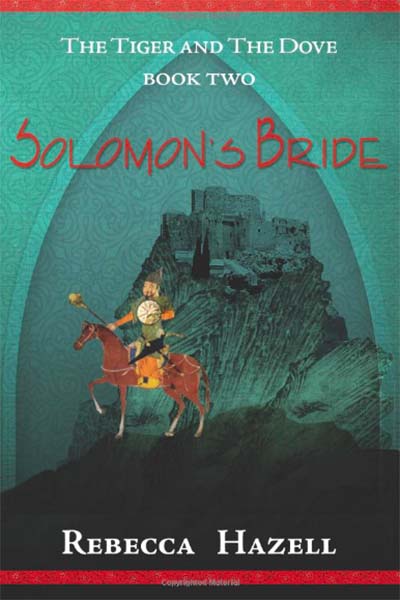
Solomon’s Bride
The Tiger and The Dove
Book Two
Solomon’s Bride is the dramatic sequel to The Grip of God. Sofia, the heroine, a former princess from Kievan Rus’ was enslaved by a Mongol nobleman and then taken as a concubine by the leader of the Mongol invasions, Batu Khan, grandson of Genghis Khan.
Now, having fled the Mongols with a price on her head, Sofia escapes into Persia and what she believes will be safety, only to fall into the clutches of the Assassins, who seek to disrupt the Mongol empire. In a world at war, both outer and inner, the second phase of her adventures unfolds.
Can she ever find safe haven, much less the lost love and family that was almost destroyed by the Mongols?
Consolamentum
The Tiger and The Dove
Book Three
In the finale of Sofia’s memoir, Consolamentum, both dramatic and poignant, her dreams of home are shattered when her own family betrays her. Raising her child on her own, mourning the loss of her beloved knight, and building a trading empire, she seeks safe haven for her child and herself.
Her quest takes her from Antioch to Constantinople to Venice. A surprise reunion in Venice leads her to France where she runs afoul of the newly established Holy Inquisition, possibly the greatest challenge she has yet faced. Can a woman so marked by oppression, betrayal, and danger ever find her safe haven, much less genuine happiness?
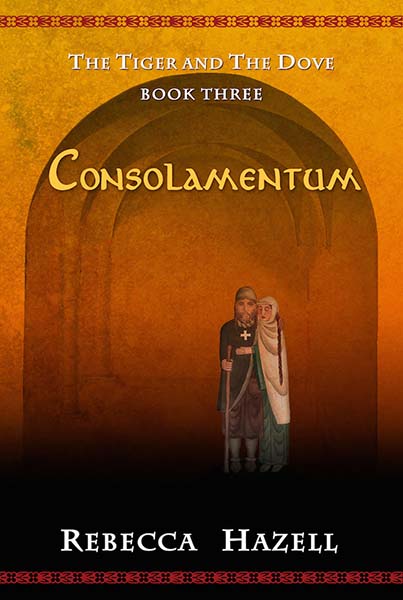

Heroes
Great Men Through the Ages
Each of these heroes — among them, rulers, artists, scientists, warriors, and philosophers — used their special abilities to improve the lives of others. Their influence was felt during and well beyond their own lifetimes. Men such as Leonardo da Vinci and Benjamin Franklin used their genius to investigate many aspects of the world around them, contributing much to the way we look at the world today. Others, such as Prince Shotoku and Mansa Musa, made good use of their powerful positions to enact sweeping reforms for the benefit of many. Gandhi and Martin Luther King, Jr., advocated civil rights and nonviolent resistance, both sacrificing their lives in the process.
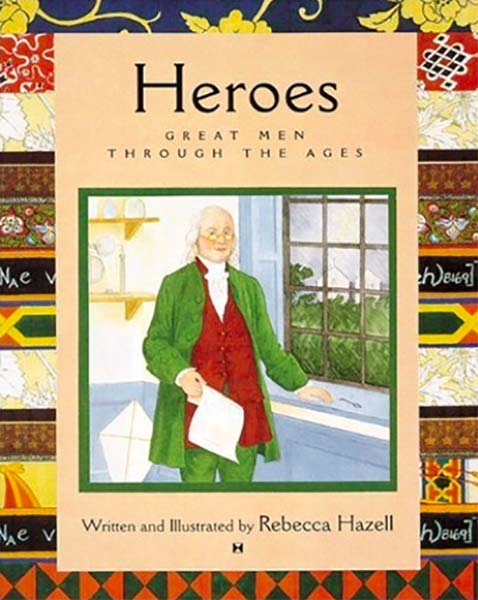

Women in the Arts
Women Writers
Professional writing has traditionally been a male occupation, but despite restrictions exceptional women produced important and influential poetry, stories, novels, and plays. From ancient Sumerian priestess Enheduanna’s poetic praises, to 19th-century English novelist Jane Austen’s witty romances that challenged social convention, and from Beatrix Potter’s timelessly popular animal tales to Harlem Renaissance writer Zora Neale Hurston’s powerful portrayals of the African-American, the written word has been an effective way for women to express their own perspective on such universal themes as love, relationships, faith, death, and the meaning of life.
